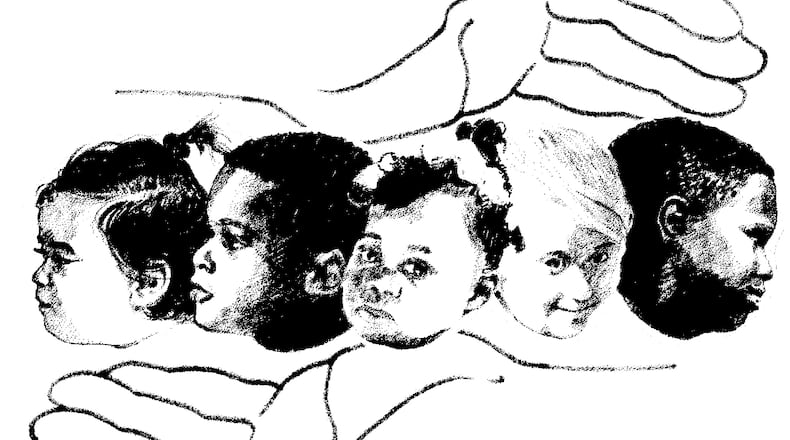For a number of years, now, America’s foster care system has been struggling. More children are in crisis in our nation due to neglect, abuse, opioids, homelessness and more. Yet, there are not enough foster parents. In addition, today’s caseworkers and child welfare agencies are overworked, overwhelmed, underresourced, undersupported, understaffed, and underpaid.
Foster care needs reform in our nation. Here are 10 ways to reform foster care in 2023.
Credit: contributed
Credit: contributed
Mental health services
Many children in foster care have experienced trauma in their lives before being placed into care and suffer from a number of anxieties. Trauma-based therapy needs to be available to all children in foster care and foster parents need to be trained in trauma-informed parenting.
Kinship families
When possible, Kinship Care should be taken into consideration as an option. Kinship foster care is an out-of-home arrangement for full-time care by relatives, including grandparents, aunts and uncles, cousins and sometimes even older siblings. Kinship care allows families to stay together, and studies indicate it helps improve mental health, stability and behavior.
Support foster parents
Foster parents often do not have all the support they need from caseworkers and agencies, nor the resources or time they need to best help the children they are caring for. More training, understanding, support and time to heal from grief, loss and burnout is needed for foster parents.
Placement stability
When children in foster care move from one home to the next, and thus have a lack of stability, they often struggle with issues of trust, attachment and anxiety. They also face significant emotional difficulties, such as a lack of self-worth and the need to be in control, which can make it hard to establish healthy, loving relationships. There needs to be less movement between families and instead more stability in their placements and being safely placed with families while in foster care needs to be emphasized.
Work with birth families
Many children in foster care come from a generational cycle of abuse, neglect and abandonment, as well as a cycle of family members placed in foster care before them. Foster parents need to both be more aware of this, as well as co-parent when possible. Co-parenting sees the foster parent working alongside the biological parents of the child. When foster parents share the care and nurturing of the child alongside the birth parents and caseworker, reunification tends to happen at a quicker and more successful rate.
Relief for caseworkers
As noted before, today’s caseworkers are underresourced, underpaid, overworked, and overwhelmed. Our caseworkers need to be given more time, more funding, more resources, and more understanding from the public, courts and foster parents.
Adoption
There are roughly 117,000 children in the foster care system nationwide who are waiting to be adopted each year. Each of these children deserves a loving family. More families willing to adopt a child are needed in order to help children find a forever family and find permanency.
Help kids who transition out
Roughly 20,000 foster children in the U.S. age out, or transition out of the system each year and attempt to begin life on their own. Far too many do not have any type of support system in place. As a result, many fail to graduate from high school, end up homeless and become incarcerated at some point. More wraparound services and support needs to be provided to these youth and young adults after they leave the foster care system.
Faith-based help
Today’s faith-based organizations have an opportunity to truly impact the foster care system in a positive way. Delivering meals for families, creating clothes closets for children in care, providing hygiene items and school supplies for children when placed in care are just a few of the many ways that today’s faith-based organizations can help.
Become a foster parent
With roughly half a million children in the foster care system in the United States alone, the need is strong for good foster homes and foster parents. By becoming a foster family, you can provide stability, safety and hope for a child in foster care. You can give love to a child who may never have been given it before.
Not only will you change the life of a child, your life will change as well.
Dr. John DeGarmo is founder and director of The Foster Care Institute in Monticello. He and his wife have had more than 60 children come through their home in Jasper County. He is a consultant to foster care agencies, child welfare organizations and legal firms.
About the Author
Keep Reading
The Latest
Featured



